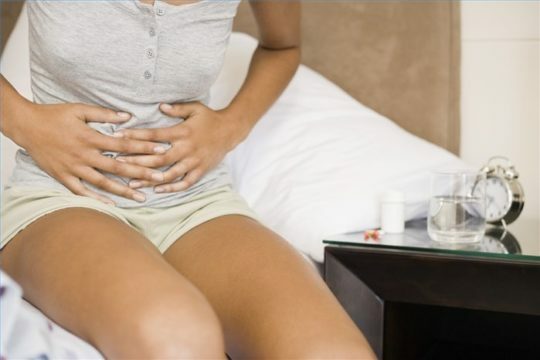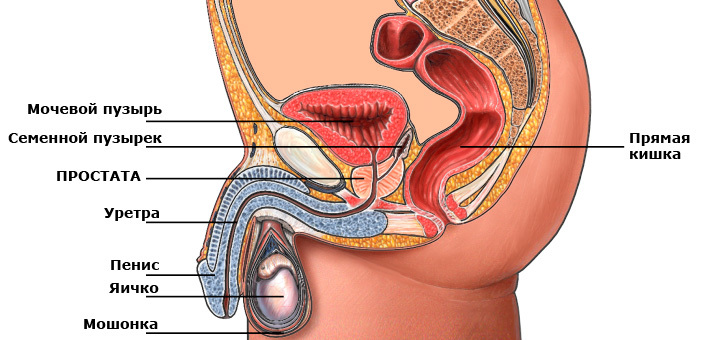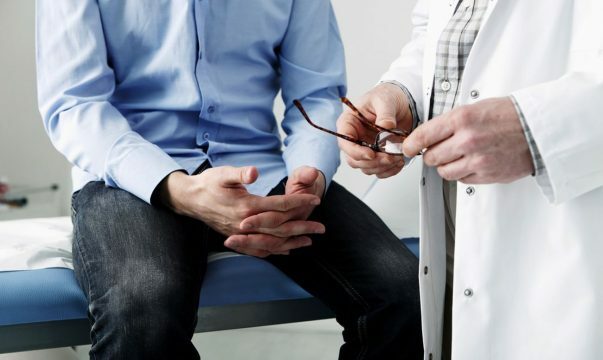Each disease can take place in an easy and complex form, accompanied by pain and require special attention. If you have already diagnosed an ovarian cyst, you need to take pain seriously. The disease itself has a positive prognosis, but if it starts to hurt, it may indicate complications.
A little about the disease
If we consider anatomical changes, the cyst is a neoplasm that has a rounded shape, thin walls and a mucous filling. Dimensions, depending on neglect, can be from 1.5 cm to 20 cm.
The first periods are asymptomatic, but with the increase in size there are signs of varying complexity:
- Change in the course of monthly - regularity, abundance;
- Intensive release of urine;
- Unpleasant sensations when having sex;
- Problems with stool;
- Pelvic pain;
- Increased abdominal size, often one-sided;
- Even small portions of food can give a feeling of a full stomach;
- General weakness;
- Nausea;
- Periodically, there is no orientation in space.
The causes of the disease are many, they are very diverse, up to the early menstruation. More often it is the result of surgical intervention or endocrine dysfunction. Among the options is the use of oral contraceptive methods, since hormonal changes are included in the list of causes. There is a genetic predisposition, so when you collect anamnesis questions are asked about the presence of the disease in relatives.
If the treatment is wrong or untimely, the disease can become an obstacle to the birth of children, so you should take seriously the choice of a specialist and in the future to implement his recommendations.
Causes of pain
You need to start with the fact that pain can have a permanent and sharp character. In the latter case, it is better to seek medical help quickly. Acute pain is most often associated with serious complications requiring urgent surgical intervention, such as rupturing the cyst or twisting it.
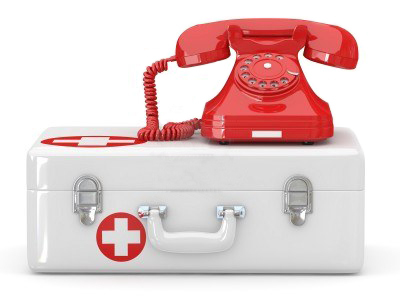
The ovarian cyst hurts and when:
- develops inflammatory processes;
- acquisition of too significant size, which causes the violation of the work of neighboring organs and tissues;
- contact cysts with nerve endings and their perforation;
- tissue organ atrophy;
- oncological changes.
Elimination of pain
It should be recalled that the ovarian cyst is really treated by folk methods. Give good results herbal fees, special diets. In addition, there are specially designed complexes of health gymnastics in this disease. But if the pain has already appeared, most likely, the use of all these possibilities is left behind, and without serious medical care can not do.
Pain in the ovarian cyst is the reason for the patient to report urgently to the treating gynecologist. Depending on the results of the examination, a different treatment can be prescribed:
- You can limit analgesics only if the patient is constantly being observed by the doctor, the pains appeared against the background of a decrease in neoplasm.
- Conservative therapy is indicated with a small size of the cyst, when the complicating course of the disease has not yet appeared. Thus, the inflammatory process and swelling of the tissues can be removed. In addition, medications help to gradually reduce the size of the cyst.
- Physiotherapy procedures are auxiliary, but at times very effective. They can not be carried out at home, since special equipment is used: heating, electrophoresis and magnetotherapy are carried out. In the period of remission it is recommended to use sanatorium-and-spa treatment. There, patients are prescribed mud applications, a course of mineral waters is conducted.
- Surgical intervention is indicated only for emergency conditions when:
- There are significant suspicions of cancer;
- The cyst has become too large and can burst at any time or threatens the dysfunction of neighboring organs;
- There was a rupture of the neoplasm;
- There is a history of twisting of the cyst.
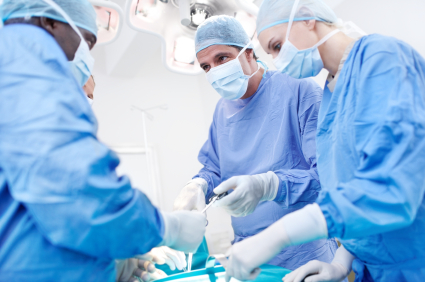
But even in this case, surgeons treat the female body with care and try to save the ovary, choosing, if possible, the method of minimally invasive endoscopy.
A recovery period with hormonal therapy to prevent possible recurrences of cysts.
If the diagnosis is not made
If a woman has a suspicion of symptoms, but she did not consult a doctor, you must first visit a gynecologist. When visiting, you need to be ready to answer the following questions:
- name the symptoms that cause fear;
- describe their intensity and approximate appearance time;
- character of these sensations;
- describe the disorders of the menstrual cycle, how much time they occur, what form;
- to name all the drugs that have to be taken at the moment, including those related to contraception;
- call the available diagnoses for gynecology;
- is there any oncological disease in the family.
Naturally, for an accurate answer to questions it is better to prepare in advance by making brief notes in writing. This will help more accurately not only to identify the disease, but also to prescribe treatment.
After that, studies will be assigned, including blood tests, a smear, ultrasound, if necessary, MRI and laparoscopy.
It should be borne in mind that the ovary can be ill or other symptoms can be observed in the course of completely different diseases. There are a number of diseases of the gynecological plan, which are similar in symptomatology, but they are seriously different for violations in the body and the method of treatment.
If studies do not find violations of the gynecological plan, studies are possible with a gastroenterologist, proctologist, endocrinologist. But in any case it is necessary to find out why it hurts, what it hurts and start treatment. Pain always indicates serious violations. This is a nature of its inherent function.
Preventive measures
In order to be able to be treated exclusively by conservative methods, it is necessary:
- To conduct regular medical examinations and to detect the disease in time. The survey period is 6 months.
- In addition, special attention should be paid to examinations of women who have already been treated for this disease. Many types of cysts are prone to relapse. In addition:
- Avoid accidental connections, as inflammatory processes and infectious diseases are provoking factor.
- To adhere to a uniform temperature regime, not allowing supercooling of an organism and its overheating.
- Use hormonal methods of contraception after consulting with your doctor.
- Plan your personal life in such a way that there was no need for abortion.
- If you have excess weight, consult an endocrinologist to normalize the hormonal background.
These simple measures will help prevent major health problems and maintain reproductive function. After all, the continuation of the family is the main task and the greatest joy for every woman.

